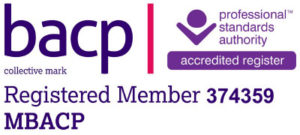Most of us intuitively know that having close, supportive relationships is important to our general happiness and well-being, but did you also know that decades of scientific research confirm that human connection not only affects our mental health but is also a key determinant to how long we’ll live and how physically healthy we’ll be during those years? People who are more socially connected are happier, physically healthier, and they live longer than people who are less well connected. This isn’t just referring to intimate, family and romantic relationships, all types of human connection count (from social to professional, from the people you volunteer with to the man behind you in the queue at the supermarket). The good news is that making small changes in our relationships can yield big results. Here are six relationship resolutions to consider, they could improve your connections:
1. Change the words you’re thinking about other people. Words matter. Not only the words we use when we speak to others, but the words we say to ourselves about others. Our internal narrative — especially the story we tell ourselves about other people, their decisions, behaviours, quirks, and habits — has a profound effect on how we interact with them. When we tell ourselves “They’re so controlling” or “They never listen to me” or “They’re so self-centred” before or during a conversation with a partner, colleague, or sibling, we’re setting ourselves up to be more likely to find evidence of their controlling/non-listening/self-centred behaviour – we’ve primed ourselves to spot it. So, there are three simple steps you can take 1) recognize when one of these judgmental thoughts enters your head that reinforces a negative narrative 2) stop yourself from telling this story 3) replace it with a more positive word or phrase. Not something that is untrue (“They always listen to me”) but something that reminds you to show some compassion (“They’re trying their best”).
2. Create tiny moments of positivity during your day. Just take five seconds to learn the name of that nice person in the orange apron at B&Q who helped you find the particular nail you needed and tell them they made your day, or stop at your colleague’s desk and ask how their aging parents are, or thank your neighbour for keeping such a beautiful front garden. Whenever we share a tiny, positive moment with another human — even if it’s just a warm smile or eyes meeting as we acknowledge each other for existing on the same planet — we unleash a cascade of positive reactions in us and them (a healthy dose of rest and digest hormones – our natural happy chemicals coupled with a reduction in physical and emotional tension, lead to improved mood/immune system functioning/digestive and reproductive health).
3. When you and your partner argue, hold hands with them. When we’re in conflict with our partner, it’s important for us to remember we’re on the same team despite our differences. One of the easiest ways to do so is to agree to hold hands while you argue. This simple gesture helps couples feel more connected and, as a result, to be less destructive as they fight. If this doesn’t work for the two of you, you could come up with your own way to reinforce your bond. You could decide to interrupt each disagreement — at least once — with a 10-second kiss, or you could both agree, while fighting, to hold up three fingers at the beginning, middle and end of a tense discussion, a nonverbal symbol that means “I love you.”
4. Ask an open-ended question of someone in your life every day. Communication is complicated, and not all communication is created equal. Shouting is communication, for example. And so is lying. Actively listening while letting someone else speak is also communication, and it’s one of the most undervalued methods of building relationships with others. This means listening simply to better understand the other person and giving them space to share their story, express their fears, articulate their hopes, or just tell you what irritated or delighted them today. One of the easiest resolutions you can make to improve any of your close relationships is to listen more, speak less, and ask open-ended questions. Once a day, invite someone you care about to share. Ask the colleague who sits near you: “What’s been the best part of your week so far?”; ask your neighbour when you’re both out walking your dogs: “What’s bringing you joy these days?”; or ask your child over dinner: “What are you most afraid of happening in the next year?” Then, be fully present with them as you listen to them answer, without interrupting them with your own response or turning away. When we do this, we show the people in our lives that we really care about them.
5. Schedule time to spend with your best friends. Strong, quality relationships require maintenance and ongoing investment. Friendships have been shown to be key to our happiness and longevity, especially as we age, but even the best of them will wither if we don’t nurture them. One easy way to do this is to carve out time in our weekly or monthly schedule to connect with our friends. If possible, meeting them in person is best, but even a regular Zoom or phone call is enough to provide us with benefits.
6. Deliver an overdue apology. Many of us — because we’re only human — have ended a relationship in a clumsy or careless way, or maybe we’ve been on the receiving end of that. Regardless of which role we played, we walk around with grudges or resentment towards a colleague, boss, cousin, roommate, neighbour, ex-partner, etc. You could pick one of the people in your life with whom you’ve had a falling out and write them a note or send them a message. Keep your apology short and simple and accept responsibility for what you didn’t do well. When we embrace our humility, we’re not only more likely to forgive and be forgiven but we can get a significant boost in our happiness as well. If you choose to do this, don’t expect to get a response. If the other person takes in your words and says they forgive you, that’s great, but forgiveness is partly an internal process, an opportunity for us to lighten our load by letting go of uncomfortable negative emotions (unprocessed feelings) that have been weighing us down. It can feel liberating to release resentment or grudges.




